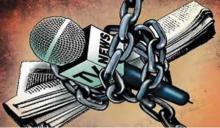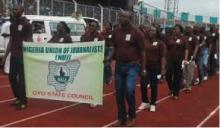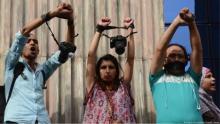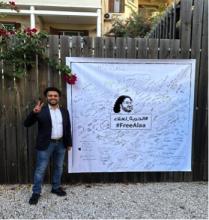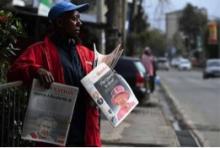Journalists in Nigeria believe there is a lot more that can be done to protect press freedom in the country. According to them, institutions such as government agencies and media professional bodies should commit and do more to ensure an environment where free press is achieved.
Many Nigerians have taken the fight for press freedom to social media, urging authorities in the country to stop harassing journalists. Both journalists and citizens see this as the new way to highlight the plight of journalists in Nigeria.
Nigeria is considered as one of the most dangerous countries in West Africa for journalists. This is because of the daunting challenges like government interference, physical and psychological harassment as well as intimidation that journalists have to navigate in their day to day life. Thanks to the existence of journalism professional bodies, that are sharing in these burdens so that good journalism can still thrive in the country.
There appears to be a paradox between what the regulatory environment in Egypt today and some of the provisions of the law governing the same.
Journalists, meanwhile, continue to yawn for better days for the profession as they struggle with the present and look to the past in search of the future.
Maha Salaheldin, a digital investigative and data journalist, expresses her discontent towards the current working environment for journalists.
Female journalists continue to fight for better spaces within which to practice journalism in Egypt.
A lot has been written about the state of media freedom in Egypt with some reports branding the country as a top jailer for journalists and others saying it operates a highly restrictive environment for the media in general.
Independent journalism based on truth, balance, fairness and justice under the Egyptian leadership of army general-turned politician Abdel Fattah El Sisi is not welcome.
However, media houses that restrict themselves on reporting about social issues, business, sports, the environment and other areas not commensurate with state activities are allowed to practice their independence, but heavily monitored by the state.
When the events of January 2011 began unfolding in the Egyptian capital, Cairo, Abdelrahman Mansour was there. Eighteen days of public demonstrations in the centre of Cairo climaxed with the resignation of President Hosni Mubarak on 11 February 2011, bringing to an end a 30-year reign.
Unlike many African countries where state-owned media houses control the landscape, Kenya’s most influential media organisations are privately owned and this has significant implications for press freedom in the country.
The largest media organisations – Nation Media Group, Standard Media Group and Royal Media Services – own multiple newspapers and television and radio stations across the country, and their shareholders include powerful individuals and companies.
As one of the African countries with the highest foreign and local media presence and the most active and independent media council, Kenya has received great acclaim for a vibrant media environment compared to other nations on the continent.
The World Press Freedom Index prepared by Reporters Without Borders (RSF) ranked Kenya at 102 out of 180 countries in 2021, and in 2022, the position improved significantly, moving to 69 out of 180, the best ranked in East Africa.

